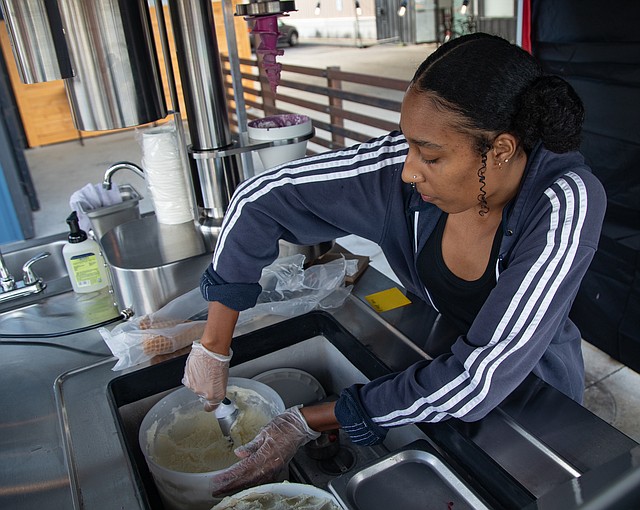Restaurant owners say they are losing money and pushing back their opening dates as they wait three to four times longer than usual to obtain required county permits.
All restaurant owners must secure a food service establishment permit from Whatcom County Health and Community Services. Since the permit application requires information about the operating space, equipment and menu, this is often one of the final steps before beginning service.
“When you read all of the documentation, it tells you you should have 10 days to two weeks to get through the process,” said Jabriel Donahue, a local restauranteur who owns the Admiralty Lounge and will soon open two new restaurants on Railroad Avenue. “But what I experienced while we were opening [the Admiralty Lounge] was about an eight-week lead time.”
Ashley Duffus, owner of Scream, an ice cream cart that opened outside of Structures Brewing earlier this month, experienced similar delays while waiting on Whatcom County Health and Community Services.
“We submitted [our application] in June and we didn’t hear anything until August,” Duffus said.
Scream obtained its permit in early October, months later than expected and well after a number of summer events Duffus had hoped to attend.

Jade Stevenson scoops ice cream to mix with fresh fruit for a New Zealand-style sweet treat at Scream’s truck on Friday, Oct. 13. The new ice cream cart parked outside of Structures Brewing had hoped to open in July, but due to a delay in obtaining permits, didn’t start serving until October.
(Hailey Hoffman/Cascadia Daily News)
The county health department currently has about 60 projects awaiting initial review and more than 130 active projects. Under more normal circumstances, the agency would expect to have 15-20 projects awaiting initial review and 75-80 active projects, Environmental Health Supervisor Tom Kunesh said.
Because of this high volume and the ongoing onboarding of several new staff members, the health department currently expects new permit applications to take six to eight weeks to undergo initial review, Kunesh said.
After completing this review, the agency often asks restaurant owners to make changes or supply additional information before submitting a final plan and undergoing a pre-operational inspection. This stage usually requires some back-and-forth between the county and the owners, and can take anywhere from a few hours to several months, Communications Specialist Ron Warner said in an email.
Beyond frustration, these delays can cost business owners money that many don’t have.
“I would say not being opened, once we were ready to be open, probably cost us somewhere to the tune of $8,000 to $10,000 a month,” Donahue said of the Admiralty Lounge.
Donahue had already hired staff and had to create work for them to do so his restaurant would be ready for opening day.
“We were really lucky to be able to go back to our investor pool and just kind of bootstrap it. But the reality has been that what we experienced, other people would not have been able to weather necessarily, and we barely were able to,” Donahue said.
Some businesses, such as J’s Kitchen in Fairhaven, which opened in September, have started to plan for an extended permitting timeline. Back in May, when the health department told owner Justin Valle to expect to wait five to seven weeks for initial review, he said he did everything he could to expedite the process.
“My whole thing was that I needed to make sure that I had my permit packet perfect,” Valle said. “It wasn’t perfect, but it was almost perfect. I had to fix like two things, and then actually after they started reviewing my packet, it was fairly quick.”
Kunesh said his office has been taking six to eight weeks to provide initial permit reviews since February 2020, when the COVID-19 pandemic caused the office to reassign its food safety staff to help manage its emergency response. Since then, his office has seen turnover due to retirements, reassignments, and other causes.
“I ended up hiring five people that had never done the job before. It’s about a two-year training cycle to get a food safety specialist up to speed. And then the plan review work is even more complex than the routine inspection work, and it takes a little longer to get someone up to speed on that,” Kunesh said.
Kunesh expects delays to decrease in the coming months as his office works through its backlog of permits and as recent hires gain more skills and independence.
“We hope to get back down to that three- to five-week range. We’ll see what the project demand looks like, and we’ll do the best we can,” Kunesh said.
